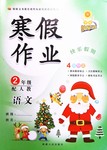题目内容
Make the right choices
What is life’s gift? 1. Choice is the ability to select one course of action from a set of alternatives to achieve a goal. What is so great about choice? It transforms us from dumb animals into artists. Each of us becomes another Michelangelo. Choice becomes nothing other than the tool we use to sculpt (雕刻)our life. The tool doesn’t come free, however, for the price of choice is responsibility. 2. The reward is happiness.
Life is not still. It is a flow. 3. We constantly need to monitor where we are on our journey. We need to ask questions: Am I moving closer to my goals? If not, what corrective measures can I take? What action will I take now to readjust myself to my goals? Choice is power. Choice is at the heart of life. It is the creative power of life.
4. And your life becomes more convenient or comfortable because of them. For example, you decide which stores to shop at and which gas station to go to. But the decisions that we make to sculpt our lives are far more important than deciding where to shop. The more we appreciate the difference between minor and major decisions, the greater the probability that we will experience happiness and fulfillment.
All chess lovers realize that it isn’t necessary to win to enjoy the game. The pleasure is in the playing. Life is like a chess game. 5.
A.But when we accept ad carry it out, we get a great return.
B.Make the best moves you can under the circumstances.
C.Life is full of hard choices, and the bigger they are, the harder they get.
D.Every choice we make leads us closer to or farther from our goals.
E.Choose to carry out responsibilities not because you have to, but because you want to.
F.You have to make choices every day.
G..It is free will or choice.
 学练快车道快乐假期寒假作业系列答案
学练快车道快乐假期寒假作业系列答案

 y a high price for his own behavior. We should all keep in minds: honesty is the best policy.
y a high price for his own behavior. We should all keep in minds: honesty is the best policy.